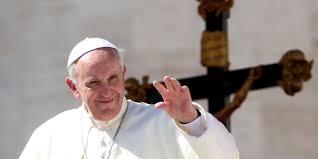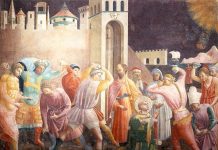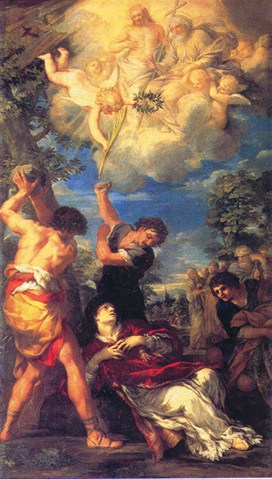We are in the midst of an enigmatic papacy, and many Catholics know not how to respond to Pope Francis. Well, some think they do, and are rather vociferous in their comments, on either side of the spectrum.
Just to be clear: When I write of the Pope, or the Church in general, my intent is not to criticize the Holy Father or undermine his authority, but to seek clarity in his sometimes ambiguous, or even his not-so-ambiguous, words.
Many have an a priori image of who or what the Pope is or trying to be: A liberal, a socialist, a conservative hiding behind such Potemkin facades, a quasi-Machiavellian Jesuit, a fool for Christ in the image of his Franciscan namesake, and so on. Whatever ‘model’ is chosen, such individuals strive to maintain their view, to ‘save the phenomena’ in Plato’s terminology, in similar fashion to Ptolemy scribbling and calculating to maintain his geocentric universe, with the ever-more complex mathematics of the equants and epicycles.
I would posit that the focus should not be on who or what Pope Francis is, or his agenda, but rather precisely what he teaches and writes, how he does so, and how his words apply to us. We are not bound in conscience by his impromptu comments in interviews, but may, and at times should, read over, ponder and question them, using them as a starting point for discussion (which may be how he intends them). The Pope’s official writings are another question, and should indeed inform our conscience, according to their degree of authority: Encyclicals are more binding than his addresses or homilies. Even here, however, we may parse out what is his opinion in a non-Magisterial capacity (such as on carbon emissions and global warming), his exhortations to moral behaviour (such as being more temperate and just towards others in our use of resources), and his reiterations of principles of our faith (such as on the indissolubility of marriage, and the impossibility of homosexual marriage).
Most of us, or at least most readers of these columns, likely wish the Holy Father would at times be more clear and precise (a la Saint Dominic and his successors!), or focus on issues we deem more fundamental (and perhaps are), or not give sound-bite fodder to the secularist media and enemies of the Church (but they will always select and interpret most unfavorably). We as Catholics are called to make our way to heaven not only by our faith, but also by our reason, by the ‘tangle of our wits’ as Saint Thomas More said, and are therefore not only free, but in some degree bound, to ‘read into’ and interpret what he says, always in the light of the Church’s perennial Tradition. But in the midst of our questioning, even our suffering and confusion, we should remember that he is the Vicar of Christ, deserving of our reverence and obedience, as well as, of course, our charity and daily prayers.
Just a clarification, and please do correct me if I go astray on my own principle.
Saint Dominic, ora pro nobis!










